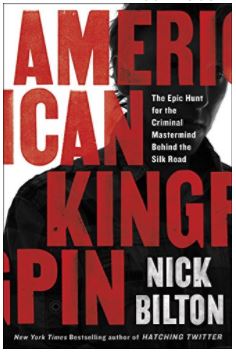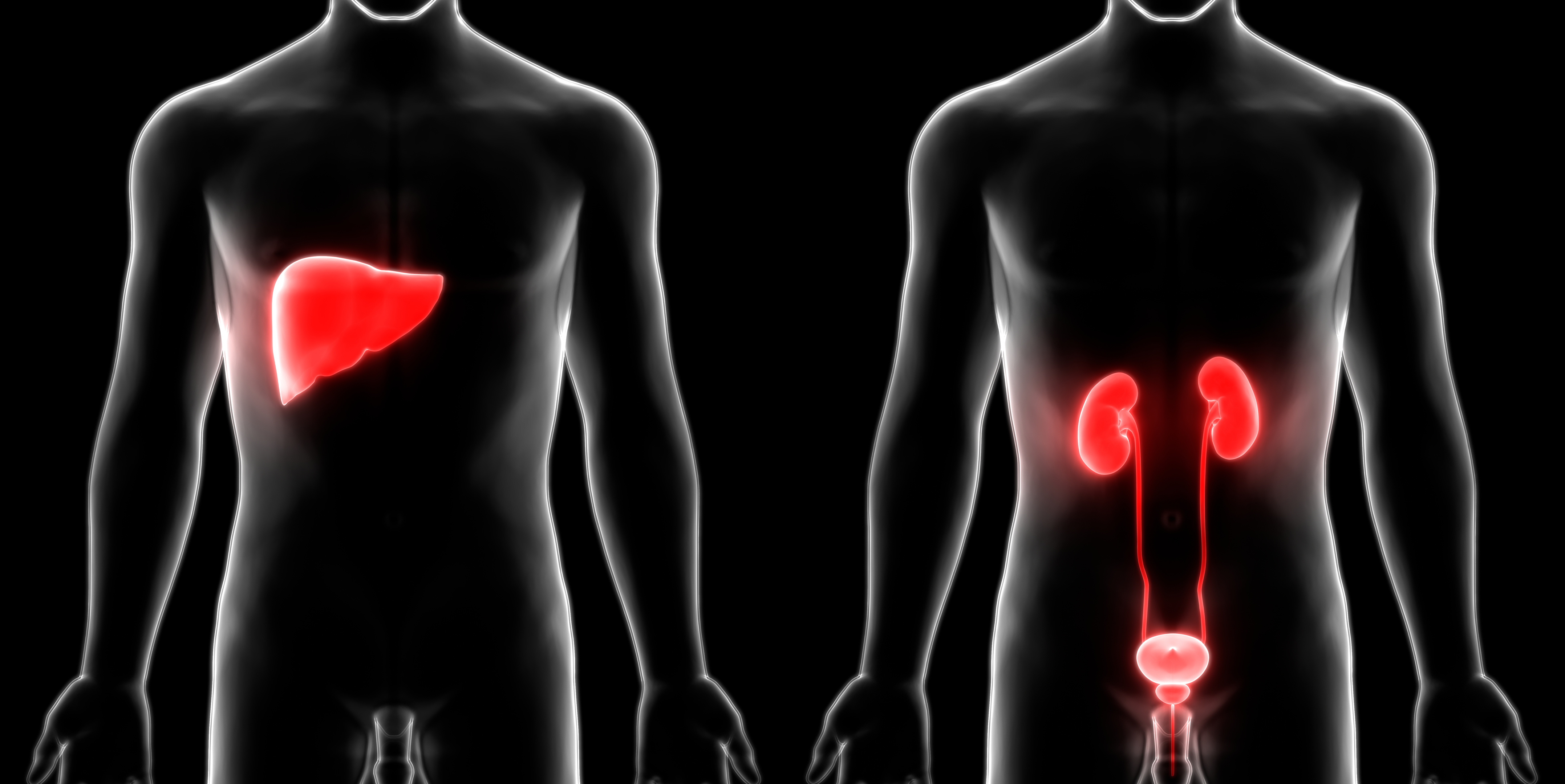This series of posts from my blog address the Silk Road drug peddling site. Particular focus is on what happens when someone has no frame of reference for making moral decisions other that what is in one’s own mind.
How do you make moral decisions if you have no frame of reference other than your own opinion? The tale of Silk Road, part 1
On what basis do you decide which is the right path?
Image of “decisions” by Impact Hub is licensed under CC BY-SA 2.0
What is the relative moral ranking of people selling the following illegal products:
- Marijuana
- Cocaine
- Heroin
- Weapons
- Explosives
- Lethal poisons
- Harvested body parts
Early in the growth of the Silk Road, which was a hidden place on the internet where you could buy anything you wanted, and I mean aaaaanything imaginable, a debate emerged about the outer limit of products that would be allowed on the site.
The website was set up and run by Ross Ulbricht. Ultimately the feds busted him, his senior staff, and another couple hundred people who worked for Silk Road or sold stuff there.
I just finished reading a book telling the tale of Silk Road, American Kingpin: The Epic Hunt for the Criminal Mastermind Behind the Silk Road, written by Nick Bilton. Have had that book on my wish list for some time.
This five-part series will be published at both Nonprofit Update and Outrun Change. Posting at the Nonprofit site is because of the spiritual dimension, and at the Outrun Change site since I have a lot of other articles there describing Silk Road. People of faith will quickly figure out the spiritual and theological implications of these posts.
Some vendors didn’t like being around other vendors who obviously were less ethical
Fairly early in the life of the site it evolved that the mellow marijuana sellers and buyers didn’t like having those hyped up coke sellers on the same website, who in turn really didn’t like being around the hard-core heroin peddlers.
In turn, the heroin dealers didn’t like their wonderful stuff showing up in the same shopping cart as the handguns and rifles sold by those wacky, weird, anti-government kooks. In turn, the gun peddlers didn’t want to be on a website with those low-life dope dealers.
What to do? How to resolve this conflict between people who thought they were morally better than the other sellers?
Each of those groups of crooks thought they were morally superior to the others.
So tell me, who is in the morally superior position when ranking sellers of pot, coke, “H” (a new term I learned in the book), semiautomatic handguns, fully automatic rifles, hand grenades, and rocket launchers?
Without any moral framework other than one’s feelings at this moment (which are subject to change at the merest whim), how can any one of those be considered better or worse than the others? Which vendors should be allowed on the site and which banned?
Well, Ross Ulbricht, also known as Dread Pirate Roberts, also known as DPR, had no moral framework other than what he felt like at the moment. As a result, his decision was to allow all of the drug and weapon vendors to sell whatever they wanted on the website. Everyone was welcome. For more details jump in at page 123 of the book.
published 8/28/17.
How do you make moral decisions if you have no frame of reference other than your own opinion? The tale of Silk Road, part 2.
Above organs were reportedly available for purchase at Silk Road. Image courtesy of Adobe Stock.
While developing Silk Road, Mr. Ulbricht had a girlfriend, whom I won’t name. She knew he was raising and selling dope on the website and broke up when he would not end his involvement with the site.
(This is part 2 of a discussion of a book on Silk Road, American Kingpin: The Epic Hunt for the Criminal Mastermind Behind the Silk Road, written by Nick Bilton. Part 1 here.)
His girlfriend came to a saving faith in Jesus Christ as her Lord and Savior later in the book, well after they broke up. (Based on a few ways that the description of her conversion and faith are described, I will make a wild guess the author of the book is not a believer).
At one point when they got back together for a while, his girlfriend persuaded him to attend worship at what appears to be a charismatic congregation that operated without a formal pastoral leadership structure.
After the worship she asked him what he thought about the morals that were discussed during the worship service.
They talked about this for a while. In response to her question about how he can tell the difference between right and wrong, he said that he thinks it through by himself.
I will quote the key sentences under fair use so you can see the subtlety of how the discussion developed:
“She looked back at Ross and tried to press the question again. ‘But how do you know what’s good and what’s evil without a reference point? Jesus is my relationship that helps me decide if I’m doing good in my life.’
“ ‘I think a man is his own God and can decide for himself what’s right and wrong,’ Ross said. ‘As a man, I decide for myself.’ “
“I decide for myself.” Wow. Each “man is his own God.” Double wow.
Lacking any framework for morality outside his own mind, he obviously made decisions based his own internal framework, which the book makes clear he made up as decisions presented themselves.
Ultimately there were thousands of different drugs available on the website along with the equipment and supplies needed to cook any kind of dope you wanted to manufacture. Later on (see page 168) Dread Pirate Roberts allow the sale of poison, including cyanide.
According to the book, human body parts, such as livers or kidneys or bone marrow, were allowed for sale with no questions as to the source. Kidneys from China were heavily discounted from prices charged by vendors elsewhere on the planet (page 167). If you want to explore how far this be-your-own-god thing can go, ponder that, and then ponder the mindset that would allow such sales, no questions asked or explanations needed.
This is not even the end of him making up a moral framework for himself. He went even further in playing God.
Ponder the bible verse Jeremiah 17:9 from the New International Version in relation to the idea of deciding for yourself the difference between right and wrong, between good and evil:
The heart is deceitful above all thing and beyond cure. Who can understand it?
posted 8/29/17.
How do you make moral decisions if you have no frame of reference other than your own opinion? The tale of Silk Road, part 3.

What Dread Pirate Roberts thought he paid for when he wired out a bunch of bitcoins. Not once, but five separate times. Image courtesy of Adobe Stock.
Let’s see where he ended up with this Be-Your-Own-God routine.
The feds busted one recipient of a pound of cocaine. He was a moderator on the Silk Road site. The feds kept this guy under wraps.
Dread Pirate Roberts, who also went by DPR, concluded that this person, who worked for Silk Road, had absconded with the dope and dropped out of sight. The feds gained control over the guy’s computer.
(This is part 3 of a discussion of a book on Silk Road, American Kingpin: The Epic Hunt for the Criminal Mastermind Behind the Silk Road,written by Nick Bilton. Read parts 1 and 2. Since writing the initial draft of this series, I’ve added two more posts and another 700 words.)
An undercover fed pretending to be a big time drug dealer was in contact with DPR. So during their conversations, DPR happened to complain that someone had ripped him off. This undercover cop offered to send some of his goons over to rough up the guy. DPR agreed to have his correspondent get some of his guys over there to work over the double-crosser.
So Carl Force of the U.S. Drug Enforcement Agency and Shaun Bridges of the United States Secret Service pretended to torture this guy for DPR’s benefit by actually torturing the guy, taking pictures as they repeatedly dunked his involuntarily cooperating head in a bathtub full of water.
Oh, the two feds were yelling and screaming at this poor sap demanding he identify where he hid the money that DPR said he stole. The reality was that during the interrogation, one of the agents knew that he, the USSS agent, not this unlucky guy was the thief.
So while the agents dunked the guy in the bathtub in an effort to get his confession of stealing money he didn’t steal, they took pictures of the actual torture and, pretending to be a big-time drug smuggler, later sent the pix to DPR to show they roughed up the guy.
While Mr. Force and another fed continued the torture, Mr. Bridges left the bathroom for a few minutes.
To make a longer story shorter, Carl Force and Shaun Bridges separately either stole or scammed a lot of money out of Silk Road. DPR logically blamed the immediate theft on this poor sap (who was actually in custody, getting dunked in the bathtub, with his computer under the control of the DEA and USSS agents). While the DEA guy continued the dunking, the USSS guy took the laptop out of the room and stole even more money.
What would you do with a guy who stole $350,000 of *your* money?
Stealing $350,000 made Mr. Ulbricht really mad. That was *his* money. Any money on the site was DPR’s personal property. He thought about having the supposed thief killed.
Let’s see just how far can you can go when you have essentially unlimited financial power without any frame of reference for morality.
DPR discussed what to do about this offense with his #1 lieutenant, a guy called “Variety Jones”, who was also a mentor and coach. The Department of Justice alleges Variety Jones’ actual name is Roger Thomas Clark, although that has not been proved in court.
After DPR and Variety Jones pondered what to do, DPR made a decision.
The conclusion?
DPR talked to Mr. Force, who was pretending to be this big time drug dealer call “Nob”, asking if Nob had a way to find people who could kill this supposed thief of dope and money. Sure, the undercover fed said.
So, DPR contracted with Nob to kill the thief.
Mr. Force and Mr. Bridges forced the guy to stage a photo of his wet torso looking like he was dead, with some soup spilled next to his mouth to make it look like he vomited when he died.
DPR did not actually have this guy killed, but thought that he did. In fact, Mr. Ulbricht paid Nob in Bitcoins for the supposedly completed services.
The book says that DPR contracted to have several other people killed, but the feds couldn’t find any actual bodies. If I understand the book’s comments correctly, Mr. Ulbricht hired five contract executions.
Five contract killings.
Five.
However, it seems that all of the ‘hits’ were scams.
The point is DPR believed the presumed scammers had pull off the several jobs and he paid them for their services. The book says the trial judge stated at sentencing that Mr. Ulbricht received photos which asserted to document the killings.
Becoming a serial murderer is how far Mr. Ulbricht was willing to go with his be-your-own-god moral framework.
Posted 8/30/17
The power of rationalization when you have no frame of reference other than your own opinion. The tale of Silk Road, part 4

“fake grenade” by pat00139 is licensed under CC BY 2.0
The frightening power of rationalization is clearly on display in the story of Ross Ulbricht, also known as Dread Pirate Roberts, as he developed the Silk Road website where you could buy anything you wanted. The story is told in American Kingpin: The Epic Hunt for the Criminal Mastermind Behind the Silk Road, written by Nick Bilton. This is the fourth part of a series. You may enjoy reading parts one, two, and three.
How did Dread Pirate Roberts get to the point where he allowed the sale of every imaginable drug, various explosives, and a range of body parts on the site he created and ran? How did he get to the place of hiring and paying for five assassinations?
The book provides insight to the shifting rationalizations. Journey with me as we explore in-depth how rationalization played out in this situation.
The starting place is that Mr. Ulbricht perceived himself to be a libertarian. That is what he claimed.
I am not a libertarian, but have along the way a few details of what libertarians generally believe. Some of the economists I read and enjoy are coming from a libertarian perspective on economic issues.
Drugs okay? Yes.
One of the ideas in the libertarian school of thought, as I understand it, is that you ought to be free to do with your body whatever you wish.
If you choose to eat unhealthy foods all the time, the government should not get in your way. If you choose to consume drugs that the government has banned, you have every right to do so.
I can wrap my brain around the concept and I can even understand how that led DPR to allow the sale of absolutely any kind of drug that someone wanted to sell. After all, if buyers wants to put something into their body (so the thinking goes), that ought to be a decision they can make as they wish.
Body organs okay? Yes.
When it gets to the point of selling human organs, the thought process is outlined on page 167 of the book. The idea was that if the provider of the organ consents to the transaction, then it is fine to sell the organ in a free market.
DPR concluded that selling organs was a just transaction and completely moral.
I will quote the description in the book on pages 167 and 168 under fair use, because it provides a careful description of the concept:
Anything goes in a free market, the (non-aggression) principle states, as long as you’re not violent toward anyone else without cause. (If someone tries to harm you, then you have every right to defend yourself and your personal property, Dread explained. An eye for an eye was the way of the libertarian world.)
Maybe it is just my opinion, and maybe it is my lack of understanding of the libertarian world, but that basic concept was subsequently stretched far beyond the breaking point.
That do-what-feels-good-for-you concept carries over to allowing sale of any drugs, including synthetics which are described as being 100 times more powerful than heroin. If you want to use such a drug to get high or wasted or destroy yourself, that would be your choice.
Explosives okay? Yes.
That same concept is used by DPR to allow the sale of fully automatic weapons, grenades, and rocket launchers. From the reading I have done (if you didn’t already know I like to read widely) I’m aware that there are people who enjoy buying an automatic weapon through proper legal channels and blasting off a few hundred rounds of ammo per minute at the range. Actually, that sounds kind of fun to me. Even more so if someone else were to give me a couple of cases of ammo.
I have read that there are even people who enjoy buying cannons and armored tanks. People with such a vast amount of money that they don’t have anything else to do with it also legally buy ammunition so they can pop off a few rounds from said cannons or tanks.
How can explosives be okay?
I rather doubt that anyone buying a fully automatic weapon on Silk Road is intending to burn several hundred dollars of ammo at the range next weekend. I doubt anyone buying a grenade or rocket launcher is going to be popping it off just for kicks at their buddy’s hundred acre farm over summer vacation.
Maybe it is a failure of my imagination but I can’t really see anyone buying explosives at Silk Road would look at that them as fun toys to be used in an innocent way. Those weapons are sort of in the range of things one would buy when one is intending serious harm to another person. Or a large number of persons.
Seems to me that would really run contrary to anything I understand of the libertarian frame of reference.
Posted 8/31/17.
The power of rationalization when you have no frame of reference other than your own opinion. The tale of Silk Road, part 5.

According to ‘Dread Pirate Roberts’, his ordering the execution of a renegade employee is morally the same as the U.S. President ordering one of the above wartime launches. Illustration courtesy of Adobe Stock.
This is the second of two posts describing the frightening power of rationalization on display in the story of Ross Ulbricht, also known as Dread Pirate Roberts, as he developed the Silk Road website where you could buy anything you wanted. The story is told in American Kingpin: The Epic Hunt for the Criminal Mastermind Behind the Silk Road, written by Nick Bilton. This is the fifth post in a series. You may enjoy reading parts one, two, and three.
You might want to read part four before diving into this wrap-up of the rationalization discussion.
How can body organs be okay?
Shall we extend this discussion into body organs?
I suppose there might be some way for informed consent to be given in a situation where a body organ is extracted and sold on the Dark Web. I can’t get my brain around it, but I suppose there might be some possible way to do so that would be consistent with libertarian concepts.
I have a real problem with thinking that organ providers in China gave informed consent.
Maybe I’m missing the boat or maybe just can’t stretch my brain far enough, but I don’t see how libertarian concepts can be used to justify the sale of either hand grenades, rocket launchers, or livers & kidneys. That seems to be a rationalization to do what you otherwise feel like doing.
There is even more rationalization in play.
How do beatings and torture fit in?
Now let’s jump forward to page 181 and following.
When DPR incorrectly concluded that a site moderator had run off with a pound of cocaine and stole $350,000, DPR had to decide what to do. If word got out that you could steal that much money and get away with it, the site would be vulnerable to every single employee who wanted an early retirement.
He had to do something.
He discussed what to do with several of the staff. He realized there weren’t any laws or rules in play. He had the power to decide what direction to go.
He could have blown it off (not an option since it would encourage others to steal DPR’s personal property), or he could have someone punch the guy a few times and threatened him, or he could have someone torture the guy, or he could even have him killed.
What to do?
What to do?
He had the money to do anything. He had the unilateral and unappealable power to do anything.
He decided to have the turncoat tortured. He called Nob and asked him to send some of his goons over to rough up the guy.
How does that fit with the libertarian perspective described earlier?
How does beating someone up, including maybe giving him some broken fingers (like DPR imagined would be needed), fit with the self-defense concept described earlier? Seems to be seriously out of proportion.
That is retaliation.
Sure seems to me that is punishment after someone took your property, not a defense of your property.
That suggests the libertarian concepts may have easily rolled off the lips of DPR, but did not really form a frame of reference that guided him in any meaningful manner.
How does murder fit into any ethical framework?
Now let’s take a look at the rationalizations for murder as described starting on page 199. Watch as this rationalization departs from any identifiable moral framework.
The book describes the payment made after the killing was another $40,000. (I can’t find a reference for the amount of the first payment, but that makes me think the total price was $80,000.)
The book also says the killing distressed DPR and then described the rationalization in play.
Such extreme behavior as stealing $350,000 of DPR’s money needed a strong response to protect his empire.
People like that were a serious threat to what DPR had accomplished. If not addressed, it could destroy all of his property. It could destroy his legacy of ending the prohibition on drug sales (yes, that was his lofty aspirational goal).
Furthermore, he was merely defending his property.
The movers and shakers of the world just have to make tough decisions
The book describes two specific comparisons. Try these on for size.
Having the supposed thief executed was no different from the President of the United States authorizing a drone strike on a specific house in Afghanistan or Iraq. The people soon to die, which could easily include innocent bystanders, need to be killed to protect the US and its allies.
That is an ugly and a horrible thing but sometimes is necessary. Just like the killing that DPR authorized.
Killing terrorists by drone strike in Afghanistan and killing the thief of $350K by contract assassination are morally equal, right? Right?
The same concept applies in the business world.
The book says (which given the structure of the book I believe reflects a discussion between DPR and one of his staff) there have been dozens of Chinese workers who killed themselves by jumping to their deaths because the working conditions while making iPhones were so horrible. (I have no idea if the starting point of this rationalization is even true. The scary point is that like the fulfillment of the five contract killings, DPR believed it to be true.)
While those deaths are unfortunate, that is a cost that Steve Jobs has to bear, according to the book, in order to change the world by making iPhones available to everyone at a great price. Again, that is a rationalization the book explains was in play inside DPR’s mind.
Those alleged suicides of iPhone workers are merely the price paid to change the world. Just like the price DPR had to pay when he was forcedto order the assassination of one of his workers. DPR just had to do that in order to make the world a better place through massive sales of drugs and weapons and body parts.
(Your homework assignment if you want extra credit: identify the separate rationalizations and specific fallacies in the above two stories.)
Behold the power of rationalization
At this point, DPR had long since departed from anything resembling libertarian principles or any identifiable frame of reference.
Consider his moral journey:
He has authorized the sale of any drug in existence.
He has authorized the sale of explosives and body organs.
He has authorized the beating and likely torture of a thieving employee.
He has authorized, and paid for, what he firmly believed was the execution of that employee.
He can easily move forward from here to authorize and pay for another four murders.
It sure does seem to me that Dread Pirate Roberts was using a heaping helping of rationalizations. He was not working from any identifiable frame of reference outside of himself.
Consider again this bible verse from Jeremiah 17:9 in the NIV translation:
The heart is deceitful above all thing and beyond cure. Who can understand it?
Posted 9/1/17
Where did one guy wind up by making moral decisions with no moral frame of reference other than himself? The tale of Silk Road, part 6.

Mr. Ulbrecht’s housing for the rest of his life (plus the next 40 years). Image courtesy of Adobe Stock.
How far did he go?
So as a result of running the drug bazaar called Silk Road, where did Ross Ulbricht wind up with his efforts to forcibly legalize drugs and simultaneously remove God from His throne and take over the throne for himself?
What did he get for his efforts? The feds claim he had tens of millions of dollars in his personal accounts.
(This is part 6 of a discussion of Silk Road, as described in, American Kingpin: The Epic Hunt for the Criminal Mastermind Behind the Silk Road, written by Nick Bilton. Check out parts one, two, three, four and five, if you wish.)
He ran a web site at which he knowingly sold to anyone who could pay:
- pot,
- coke,
- heroin,
- many varieties of synthetic drugs,
- equipment & supplies to manufacture drugs,
- automatic weapons,
- grenades,
- rocket launchers,
- body parts, including but not limited to:
- livers,
- kidneys,
- bone marrow,
- deadly poisons,
- counterfeit identification,
- counterfeit currency,
- keystroke loggers,
- spoofing software,
- sundry hacking tools, and
- fake passports.
He also contracted for and paid for what he thought was the murder of five people who offended him.
Let that sink in – the book says he contracted for what he believed were multiple murders. He believed sufficiently strongly that the hits had been carried out that he paid for the services. Five times.
Where did he wind up?
So, where is he now?
Federal prison.
On two counts (#2 and #4) he was sentenced to life imprisonment. For the other counts, he was sentenced to an additional 40 years.
At sentencing, the judge reminded Mr. Ulbricht that there is no parole in the federal system. A life sentence runs until you are dead.
He will be eligible for release 40 years after he dies.
A hint of what maximum security prison looks like
He isn’t in the stereotypical ‘club fed’ either. No, he is in maximum security. Sits in his cell 23 hours a day.
For an hour of exercise, he is shackled hands and feet, then shuffles off to a roof-top area where he can get fresh air and sunshine.
According to the book, the exercise area has steel bars across the top, partially blocking the sun and view. This is to prevent things like his compatriot Vanity Jones from swooping in with a helicopter for a dramatic rescue and pulling him off the room.
He is in a cage even during his exercise. That will be his routine for the rest of his life.
Posted 9/4/17.
It didn’t end well for two of the feds investigating Silk Road. The tale of Silk Road, part 7.

The wages of corruption. Image courtesy of Adobe Stock.
Two of the feds working on the Silk Road investigation went rogue. That did not turn out well for them.
This is part 7 of a discussion of Silk Road, as described in, American Kingpin: The Epic Hunt for the Criminal Mastermind Behind the Silk Road, written by Nick Bilton. Check out parts one, two, three, four, five and six, if you wish.
Since the book was written, there have been more developments. I stumbled across the additional info after drafting this series of posts.
Let’s take a look at how things turned out for the two crooked federal agents.
What did the two feds do and what did they get for their trouble?
Carl Force, while employed by DEA, fed information on the investigation to Ross Ulbrickt, aka Dread Pirate Roberts, aka DPR, so DPR had some heads-up to stay ahead of the investigation. The book says he was eventually paid $757,000 by DPR for inside info on the investigation.
He was sentenced to 78 months in prison.
Shaun Bridges, while employed by Secret Service, stole $820,000 from Silk Road, according to the book. At the moment Mr. Force and another fed did the faked real torture of the hapless coke recipient, Mr Bridges picked up the laptop, walked out of the room, and stole a bunch of bitcoins, diverting them to his account.
He was sentenced to 71 months in prison and ordered to pay $500,000 restitution.
After sentencing, he was apprehended trying to leave the country.
What else did the Secret Service agent do?
Here’s where the new info drops in.
Apparently that wasn’t the end of the shenanigans for Mr. Bridges. We also know why he was trying to get out of the country after sentencing and how he planned to fund his run from the law.
According to a report on 8/18/17 in The Hacker News, the Corrupt Federal Agent, Who Stole Bitcoins From Silk Road, Pleads Guilty To Money Laundering.
If I have a chance, I’ll go read some court documents on the PACER system. In the meantime, the article reports that after Mr. Bridges had been charged in the original case, he used the stolen keys to access the Bitcoins held by the Secret Service.
Article says after being charged and after signing the plea deal, he allegedly stole another 1,600 or so Bitcoins, worth about $359,005 at the time. That many coins would be worth about $6.6M now.
I guess we can drop the ‘allegedly’ from the discussion, since the article says he has entered a guilty plea.
Sentencing will be on November 7, 2017.
Be careful if you read this article. It is a bit fuzzy and confusing on the details.
ArsTechnica provided better explanation on 8/15/17: Secret Service agent, corrupted by Silk Road case, cops to second heist. In court, upon request Mr. Bridges silently read two sections of the information complaint, was asked by the judge if those sections were correct, and Mr. Bridges indicated they were.
He could be sentenced to an additional 10 years.
ArsTechnica linked to an on-line copy of the complaint, which can be seen here.
The case number is 3:17-cr-00448-RS, filed in the Northern District of California, San Francisco Division.
Here are some highlights from the complaint.
While still working at Secret Service, he lawfully seized 1606 bitcoins. He placed them in a private account for storage and held the key to access the account. Up to this point that sounds fine. He executed the authorized seizure and moved the bitcoins into an account he controlled. Thus the seized bitcoins were under proper government control, since you can’t carry the bitcoins down to the evidence locker and log them in to storage.
Mr. Bridges resigned on 3/18/15. When he left, he kept a copy of the private key controlling access to those 1,606 bitcoins. On 3/25/16 he was charged. On 6/15/15 he pled guilty to money laundering and obstruction of justice (See paragraph 11.)
The theft was on 7/28/15, which was 43 days after the plea was entered. If I’m reading the information claims correctly, he moved the bitcoins to an on-line brokerage, whose owner/operator was subsequently busted by the feds. Mr. Bridges then laundered the bitcoins into about 8 different on-line digital wallets and one hardware wallet account. I think the hardware wallet would be a tangible storage device, such as a thumb drive. Spreading the coins out to other accounts was accomplished in 19 known transactions from 8/3/15 through 11/16/15 for the on-line accounts and an unknown number of transactions on unspecified dates into the hardware wallet.
According to the criminal information filed, Mr. Bridges stole 1606 Bitcoins held by the Secret Service, which he personally had seized from Mr. Force’s account, which were the coins Mr. Force had previously scammed out of Mr. Ulbricht.
You almost have to chuckle at the scheme: after pleading guilty to illicit theft of bitcoins he then illicitly obtained the bitcoins that he had lawfully seized which Mr. Force had illicitly obtained.
The 8/16/17 Department of Justice press release: Former Secret Service Agent Pleads Guilty to Money Laundering.
A few interesting pieces of information from the press release. The value of the bitcoins at the time they were illegally obtained the second time is cited as $359,005 while the value of bitcoins he stole in the first round is “over $800,000.” Before reporting to jail, he was arrested on these new charges. This new round of a plea deal includes one charge of money laundering while the first round included two counts, money laundering and obstruction of justice.
It is obvious why he was trying to get out of the country: he wanted to avoid spending 6 years in prison.
Now we know how he planned to finance his run: he had about $360,000 of saleable bitcoins under his control. Earlier in the book, you can read that DPR set up an escape route by spending about $75,000 to establish permanent residency on some island in the Caribbean.
Mr. Bridges’ $360K stash just might have been enough, maybe, to spend the rest of his life sipping rum-and-cokes on the beach if he was willing to get his own ice, mix his own drinks, and buy the cheapest cases of rum on the shelf.
Posted 9/5/17.
The Silk Road perps. Where are they now? Part 8.

Image courtesy of Adobe Stock.
This is part 8 of a discussion of Silk Road, as described in American Kingpin: The Epic Hunt for the Criminal Mastermind Behind the Silk Road, written by Nick Bilton. To learn how these three individuals earned an extended stay in federal housing, you may enjoy reading parts one, two, three, four, five, six, and seven.
Current status:
In good ol’ Dragnet style, where are bad guys now?
Here is the info from the federal Bureau of Prisons website:
- Ross William Ulbricht – Life Sentence – register number 18870-111 – age 33 – confined at Florence (Colorado) – High security U.S. Penitentiary.
- Shaun W Bridges – release date 3/17/2021 – register number 20436-111 – age 35 – not in Bureau of Prisons custody, which means he is being held somewhere else.
- Carl Mark Force – release date 11/26/2020 – register number 58633-037 – age 48 – confined at McCreary U.S. Penitentiary, medium security, located in Pine Knot, Kentucky.
More status updates:
Roger Thomas Clark, whom the DoJ alleges is “Variety Jones”, is in a Thailand jail fighting extradition to the U.S. The Bureau of Prisons does not have a listing for him.
The best description of his status that I could find after a brief on-line search is in this article from the Washington Times back on 9/8/16: Silk Road suspect defies extradition efforts from Thailand 10 months after arrest: Report.
According to the article, Mr. Clark was arrested in Thailand back in December 2015. As of September 2016 he was still in Thailand. He has been charged with two counts, including money laundering and narcotics conspiracy. Potential range of sentence, if convicted, is from 10 years to life on the narcotics charge and 20 years for money laundering.
On 9/7/16, ArsTechnica reported an Exclusive: Our Thai prison interview with the alleged top advisor to Silk Road. In the interview, Mr. Clark said it is likely he will eventually lose the extradition fight. However, there will be minimal evidence against him. Unlike DPR, who was caught with the laptop open, in use, logged on to Silk Road site as administrator, and with his fingers on the keyboard, Mr. Clark says his laptops were closed and contents encrypted when he was arrested.
Shaun W Bridges – Aha. I now know where Mr. Bridges is located. He is in jail in the San Francisco area, probably the Alameda County jail, since he was wearing one of their jumpsuits in court on 8/15/17, according to the ArsTechnica article mentioned in the previous post.
He is expected to be sentenced on the second round of charges on 11/7/17.
Analysis of sentence and time to serve
In watching federal criminal cases, I’ve learned that while there is no parole in the federal system, there is an allowance of early release in the amount of 53 days for each full year of the sentence. This provides the feds lots of leverage to motivate inmates to behave well.
That is also why we sometimes see a peculiar sentence of one year and one day. That extra day allows the feds to hold over the head of an inmate the possibility of up to 53 days early release.
That 53 day allowance is incorporated into the expected release dates. In addition, at some point before official release inmates are moved to a residential custody facility in order to prepare for reentry into society. I’ve not figured out what the pattern is for transitional housing.
So, here is my analysis of the actual sentence, likely potential time off for good behavior, likely actual time that will be served, and a guess for when they are credited for going into custody:
| Bridges | Force | |
| release date per BOP | 3/17/2021 | 11/26/2020 |
| sentence in months | 71.00 | 78.00 |
| sentence in years | 5.92 | 6.50 |
| truncated number of years | 5.00 | 6.00 |
| days early release at 53 days for each full year | 265.00 | 318.00 |
| months of early release | 8.83 | 10.60 |
| months likely to be in custody | 62.17 | 67.40 |
| my guess on incarceration | 2/7/2016 | 5/15/2015 |
Why do I make such calculations? First, it is interesting. Second, it helps me learn more about the federal system. Third, readers may find this methodology helpful when reading about other federal criminal cases.
Posted 9/6/17
Final thoughts on the tale of Silk Road. Part 9.

Cover of “American Kingpin” from Amazon. Used under fair use.
This is the 9th and final part of a discussion of Silk Road, as discussed in American Kingpin: The Epic Hunt for the Criminal Mastermind Behind the Silk Road, written by Nick Bilton. For the longer story, you may enjoy reading parts one, two, three, four,five, six, seven, and eight.
Other thoughts on the book
If you have previously been following the Silk Road story, you will enjoy the book. It reads like a good detective novel, except it is all true.
The book describes the mutual low opinion held of other federal agencies by the staff of most of the federal agencies that had a part in the investigation. This is not the first time I’ve read of those attitudes or heard of poor cooperation across agencies.
Lack of technical discussion
A couple of the reviews at Amazon indicate there is minimal technical detail in the book. That is absolutely the case.
The extent of technical explanations is to say that there is something called Tor to allow secure and anonymous communications on the ‘net, something called Bitcoin to allow anonymous transfer of money, some way to encrypt a hard drive, something called CAPTCHA is important, and a comment that it is possible to partition a hard drive (whatever that may be!).
Seriously, that is the extent of technical discussion.
Vague comments hint at a lot more technical issues at play on the part of law enforcement. TOR users can be traced and their communications read. Bitcoin transactions can be traced and pinned to specific people. Lots of comments point to federal investigators who are quite skilled at finding their way around the ‘net and quite adept at using advanced technology.
One of many heroes in the story
Discussion of the trial takes up only 10 pages. There is almost as much as the 7 pages devoted to pondering by a Homeland Security investigator on his trip home after four days of testifying at trial.
Oh, about Mr. Jared Der-Yeghiayan, that Homeland Security agent. He explained to his young son the reason for long absences from home by saying he was trying to catch a pirate.
Even a 7 year-old knows that pirates are bad people. The slightly longer version is he did a lot of the groundbreaking research that led to the capture of Mr. Ulbricht. He is one of many stars in the story.
When he returned home after the trial, his son asked daddy if he caught the pirate.
Yes, he said.
I sincerely hope as that young man grows up he will know full well that his father did yeoman’s work defending our country. He is, and will remain, a hero.
And about that unwarranted defamation of one of all-time great comedies
Ross Ulbricht adopted the nickname of Dread Pirate Roberts from the classic movie Princess Bride. Why would Mr. Ulbricht defame that wonderful comedy by associating it with a dope-peddling website?
In the movie, there are many people who were Dread Pirate Roberts. The original pirate had a horrible reputation, so bad in fact that ship captains surrendered the moment they saw the pirate’s flag appear. Eventually the original DPR grew weary of life on the sea and retired to enjoy his booty, secretly transferring the title of DPR to a selected successor. In turn, the successor eventually made enough money and passed on the title again.
The key character in Princess Bride was merely one of a long line of DPRs, each of whom retired.
Vanity Jones suggested using the name Dread Pirate Roberts. He hoped that he would become the second DPR after Mr. Ulbricht retired.
In fact, the book says that at one point Mr. Ulbricht claimed he was merely one in a line of operators of Silk Road. He didn’t set it up or operate it earlier, he was merely gifted the site to use for a while and has since passed it on to someone else. Both the previous and successor DPRs were of course not known to him. The flawed concept is that would provide believable deniability to all the crimes committed while operating the site.
So, that is the how and why Mr. Live-for-the-rest-of-his-life-in-free-federal-housing came to slander such a fabulous, delightful movie.
One final thought
Ponder yet again the distance one can travel with the be-your-own-god framework for morality and decision-making. Consider again Jeremiah 17:9 of the NIV:
The heart is deceitful above all thing and beyond cure. Who can understand it?
The story of Ross Ulbricht of website Silk Road infamy illustrates frighteningly well how deceitful and far beyond cure the human heart can go.
Posted 9/7/17.
All of the above material (other than images) is copyright 2017 by James L. Ulvog.

